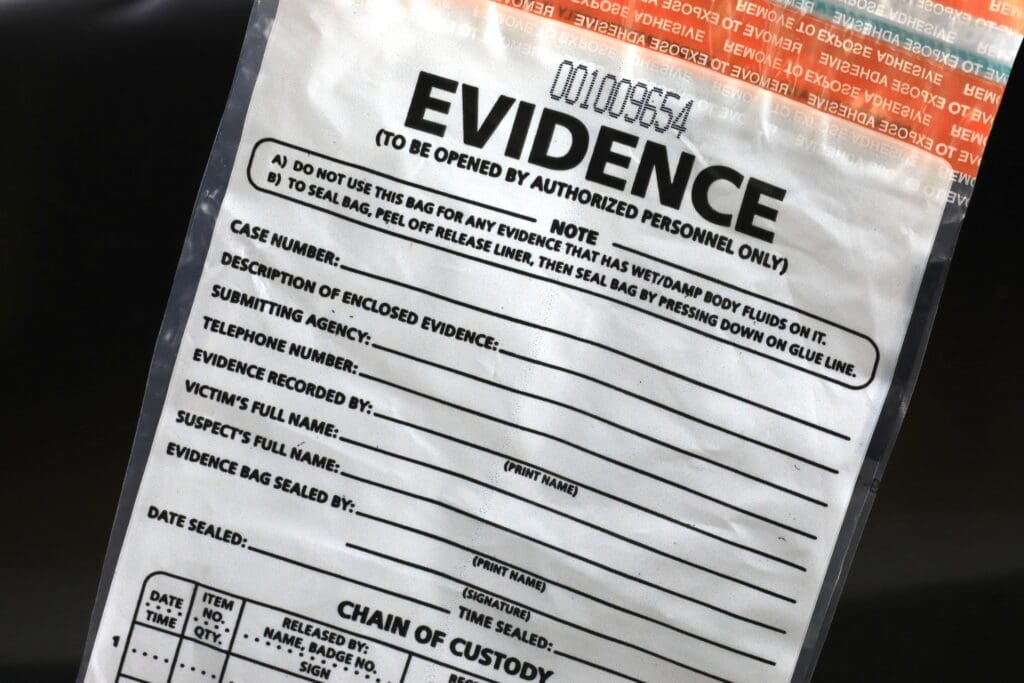Expungement and DNA records have become increasingly relevant in the criminal justice system. Understanding the intricacies of expungement and its relationship with DNA records is crucial for individuals seeking to clear their criminal records. In this comprehensive article, we will explore the concept of expungement and its intersection with DNA records. From identifying suspects to the potential benefits and risks of expunging DNA records, we will delve into the legal considerations and outline the process for individuals to pursue expungement.
How Are DNA Records Used in the Criminal Justice System?
DNA records play a crucial role in the criminal justice system. They are used to identify suspects, link individuals to other crimes, and exonerate innocent persons.
Using DNA records for suspect identification, law enforcement agencies can match genetic material left at crime scenes to those in existing DNA databases. This leads to the apprehension of individuals involved in criminal activities, thus contributing significantly to the prevention and resolution of crimes.
DNA records facilitate crime linkage, enabling the authorities to connect perpetrators to multiple offenses, potentially uncovering patterns of criminal behavior and aiding in the timely detection and investigation of crime sprees.
The exoneration of wrongly accused individuals through DNA analysis has not only served to rectify miscarriages of justice. Still, it has also exposed shortcomings in the criminal justice system, advocating for fairer legal proceedings and better protection of the rights of all citizens.
Identification of Suspects
Using DNA records in suspect identification enables law enforcement agencies to match genetic evidence from crime scenes to potential perpetrators, aiding in criminal investigations and apprehensions.
Law enforcement professionals can extract and compare DNA profiles from crime scenes and suspects through advanced DNA analysis techniques, such as polymerase chain reaction (PCR) and short tandem repeat (STR) analysis. This process generates a unique genetic fingerprint, which is crucial in connecting individuals to specific criminal activities.
Forensic DNA databases play a pivotal role in this process, providing a repository of DNA profiles from known individuals, which can be compared to unidentified samples obtained from crime scenes, ultimately aiding in the identification and apprehension of suspects.
Linking Suspects to Other Crimes
DNA records link suspects to other crimes by cross-referencing genetic profiles with existing databases. Through forensic analysis, law enforcement can connect individuals to multiple criminal incidents.
This process involves extracting DNA samples from crime scenes and comparing the genetic material with profiles stored in national and state databases. By analyzing the DNA evidence, investigators can identify potential matches to individuals previously linked to other criminal activities. Advanced forensic techniques such as familial DNA searching are utilized to find a possible suspect’s relatives, widening the investigation’s scope. Legal frameworks govern DNA evidence, ensuring privacy rights and due process are respected in collecting and analyzing genetic information.
Exonerating Innocent Individuals
DNA records serve as a critical tool in exonerating innocent individuals who have been wrongfully convicted, providing irrefutable evidence to rectify miscarriages of justice within the criminal justice system.
By leveraging the unique genetic code encoded in DNA, these records can confirm the innocence of individuals who may have suffered immense hardship due to erroneous convictions. The utilization of DNA evidence has not only overturned wrongful convictions but also shed light on systemic flaws, prompting reforms to prevent future injustices. This groundbreaking technology has propelled the innocence preservation movement, highlighting the pivotal role of science in safeguarding the liberties of individuals ensnared by the legal system.
What Is the Relationship Between Expungement and DNA Records?
The relationship between expungement and DNA records lies in the potential impact of expungement on the management and accessibility of DNA evidence within the criminal justice system.
When a conviction is expunged, the record of the criminal offense is essentially erased or sealed, but the implications for DNA records are complex. In cases where DNA evidence played a role in the conviction, expungement raises questions about the retention and accessibility of the associated DNA records. The regulations and procedures concerning the expungement of DNA records vary widely among jurisdictions, reflecting the ongoing legal and ethical debates surrounding using and storing genetic information.

Can Expungement Remove DNA Records?
Whether expungement can effectively remove DNA records involves examining legal, procedural, and ethical considerations within the criminal justice system.
Expungement typically sought for criminal records, can be a complex process regarding DNA records. The expungement process varies by jurisdiction, and the laws governing DNA record expungement can substantially differ. DNA records are often considered crucial in criminal investigations and prosecutions, so their removal through expungement poses distinct challenges. Legal frameworks, such as the legal basis for expungement, permissible content for expungement, and the potential impact of expungement on DNA databases, require thorough scrutiny for a comprehensive understanding of the complexities involved.
Can Expungement Affect DNA Testing Results?
The potential impact of expungement on DNA testing results raises intricate considerations related to the reliability, admissibility, and implications of genetic evidence within the criminal justice system.
Expungement, the legal process of sealing or clearing a person’s criminal record, presents a complex intersection with DNA testing. When an individual’s record is expunged, it raises questions about the handling and admissibility of genetic evidence collected during prior criminal proceedings. The influence of expungement on DNA testing outcomes extends to the integrity of evidence and potential challenges in establishing the admissibility of genetic findings in subsequent legal proceedings.
The broader implications of expungement on forensic practices and genetic evidence in the criminal justice system cannot be overlooked. The expungement of prior convictions may prompt a reevaluation of the original DNA testing and its relevance to the case, potentially impacting the entire fabric of the evidence presented. This complex interplay between expungement and DNA testing outcomes underscores the need to consider and examine the legal and forensic aspects involved.
Can Expungement Prevent DNA Evidence from Being Used in Court?
Whether expungement can prevent the utilization of DNA evidence in court proceedings necessitates an examination of legal precedents, constitutional rights, and ethical considerations within the criminal justice system.
Expungement, which involves removing certain criminal records from public access, may raise intricate legal issues regarding the admissibility of DNA evidence in court. Prior court decisions and constitutional safeguards, such as Fourth Amendment protections against unreasonable searches and seizures, significantly impact the handling of genetic material as evidence. Ethical dimensions further complicate the issue, as ensuring a fair trial while respecting an individual’s rights to privacy and freedom from unwarranted incrimination is paramount.
What Are the Legal Considerations for Expunging DNA Records?
The legal considerations surrounding the expungement of DNA records encompass a spectrum of factors, including state laws, the nature of the offense, and the severity of the criminal conduct.
State-specific statutes are crucial in determining the eligibility for expunging DNA records. Each state’s laws outline the conditions under which individuals convicted of certain crimes can seek to have their DNA records expunged from databases.
The classification of crimes, such as misdemeanors and felonies, and the specific nature of the offense significantly influence the expungement process.
The severity of the offenses committed, particularly violent or repeat offenses, often impacts the possibility of expungement.
Understanding these legal prerequisites is essential for individuals seeking to expunge their DNA records, as compliance with state laws and criminal classifications is fundamental in navigating the expungement procedure.
State Laws and Regulations
State laws and regulations play a pivotal role in determining the permissibility and procedural requirements for expunging DNA records, outlining the legal framework for such actions.
These regulations vary significantly across jurisdictions, with procedural mandates and legal standards often differing from state to state. For instance, some states require individuals to petition the courts for expungement, while others may have administrative processes through law enforcement agencies or specialized boards.
The conditions under which expungement is granted can differ. Some states have stricter criteria, such as demonstrated innocence or the dismissal of charges. In contrast, others may have broader provisions allowing for expungement based on the passage of a particular period without subsequent offenses.
The legislative frameworks and regulatory provisions influence how DNA records can be expunged, incorporating considerations of public safety, individual rights, and the potential for future use of these records in law enforcement investigations.

Type of Crime and Severity
The type of crime committed and its severity are fundamental considerations in assessing eligibility for expunging DNA records, as they directly impact the legal criteria and judicial discretion associated with such actions.
When evaluating the eligibility for expunging DNA records, the criminal classification of an offense and its severity play a critical role. The legal criteria for expungement often specify the types of crimes that qualify based on their nature and severity. Judicial discretion comes into play, allowing judges to assess the particulars of each case, taking into account the specific circumstances surrounding the crime and the subsequent behavior of the individual.
These factors, including offense severity and categorization, significantly shape the expungement proceedings. Certain crimes may carry different weights in the expungement process, impacting legal authorities’ decision-making and influencing the potential successful expungement of DNA records.
Time Since Conviction
The duration that has elapsed since the conviction represents a significant factor in determining the eligibility for expunging DNA records, influencing the assessment of rehabilitation, recidivism risk, and legal entitlements.
A substantial period since the conviction can reflect positively on an individual’s rehabilitation efforts. It allows for a track record of law-abiding behavior, contributing to assessing their commitment to positive change. This aspect is crucial in considering expungement eligibility, indicating the potential for successful reintegration into society.
The temporal factor also impacts recidivism considerations. With an extended duration post-conviction, the likelihood of re-offending may diminish, influencing the evaluation of recidivism risk. Therefore, the time elapsed becomes a pivotal aspect in determining whether expungement is justified from a public safety perspective.
Legally, the time frame since conviction is vital to the expungement requirements. Different jurisdictions may have specific temporal prerequisites for filing expungement petitions, underscoring the legal dimensions of this temporal assessment in the expungement process.
What Are the Potential Benefits of Expunging DNA Records?
Expunging DNA records offers significant benefits for individuals with past criminal involvement, greatly enhancing their prospects in several critical areas of life. Firstly, it improves employment opportunities, as many employers conduct background checks, and a clean record can increase the likelihood of job acquisition. Secondly, it facilitates access to housing since landlords often consider an applicant’s criminal history in their rental decisions, and a clear record can simplify the process of securing accommodations. Additionally, the expungement of DNA records is crucial for restoring civil rights, enabling individuals to fully participate in societal activities, such as voting and jury service. Beyond these individual advantages, the broader societal impact of DNA record expungement is noteworthy. It promotes the reintegration of individuals into the community and can reduce recidivism rates, thereby supporting a more inclusive and rehabilitative approach to criminal justice.
What Are the Potential Risks of Expunging DNA Records?
The potential risks of expunging DNA records include implications for the criminal justice system, public safety concerns, and the loss of potentially valuable investigative leads for law enforcement agencies.
When considering the implications for the criminal justice system, the removal of DNA records can hinder the resolution of cold cases and the exoneration of wrongfully convicted individuals. From a public safety perspective, expunging these records could reduce the ability to identify and prevent future crimes, impacting community welfare. Law enforcement agencies may face significant challenges in solving ongoing investigations without access to a comprehensive DNA database, potentially leading to delayed justice and increased risks for the population.
How Can Individuals Pursue Expungement of Their DNA Records?
Individuals seeking to pursue expungement of their DNA records must navigate a complex legal process involving engagement with the juvenile justice system, consideration of emerging adult status, and adherence to specific procedural requirements.
Once an individual chooses to pursue expungement of their DNA records, they must first understand the intricate legal steps involved. This may entail consultation with a qualified legal professional to assess their eligibility and determine the appropriate procedures to follow. Given the sensitivity of juvenile records and the complexities associated with transitioning to emerging adulthood, it is essential to approach the process with diligence and attention to legal requisites. Understanding the unique challenges and considerations related to their particular situation is paramount in successfully navigating the expungement process.
